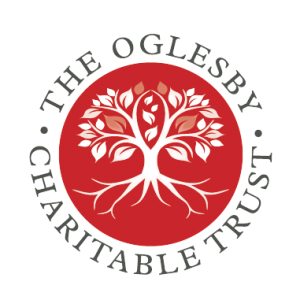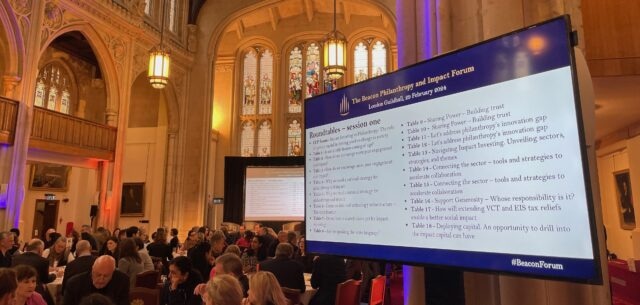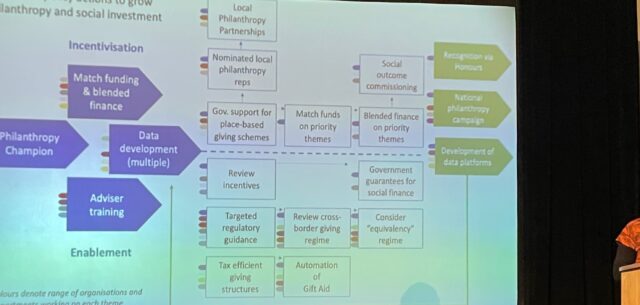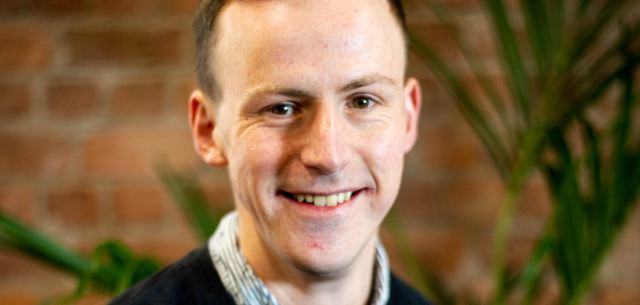Resilience for Charities and Trusts – Responding to COVID-19

The Oglesby Charitable Trust is a family trust primarily active in the North of England. Current trustees are family members of the founders, Jean Oglesby and the late Micheal Oglesby, including his daughter, Kate Vokes, who chairs the trustee board.
Philanthropists for over two decades, when the Covid-19 crisis hit, the trustees were keen to respond quickly to help limit the immediate devastation
“If any funds are held for a rainy day – this is that rainy day,” says Kate. However, the family also knew they would need to balance the crisis response with ongoing support to non-profits to think about their future.
How can philanthropists think strageic?
“We wanted to be nimble but not reactionary. We know that there is a huge desire to provide instant support, but as funders we have the luxury to be able to take a longer term view,” Kate explains. “Yes, we want to fund now, but we also want to make sure there is a charity sector to come back to in the future.”
Their first action was to sign the national Funders’ Pledge, calling for trusts and foundations to be more flexible in the wake of the outbreak and providing a framework for thinking about how to fund well through the crisis.
The trustees then agreed that their target outcome was now the survival of the organisations in their communities.
To do this, they diverted £500,000 from new project funding to crisis funding – targeting organisations they already had a relationship with, and thus, where due diligence had already been carried out. All current or recent grantees were contacted and offered support, paying attention to those working with communities for whom crises can have disproportionately severe outcomes.
Secondly, the trust considered issues that were exacerbated by the crisis and that were aligned to funding interests. The strategy here was to act now for later.
For example, when it became clear that domestic abuse was proliferating due to the lockdown, the trust considered how to increase funding in this area. While domestic abuse was not an issue that the trust had directly supported previously, it is linked to existing interest areas.
Rapid, initial scoping was done over three weeks by the two staff, to find out how philanthropy could play a role in this issue at this time. Three organisations were identified for immediate support. By agreeing to share their insight, these organisations will help the trust to commit to this issue for the long term.
Thirdly, in the face of colossal and escalating need, the trust focused its efforts on how to stretch remaining funds to reach further.
“The aim is to do as much as we can for the sector at the same time as ensuring the trust’s own sustainability,” Kate explains.
The trustees proactively sought out opportunities to leverage their own funding capacity including
- Offering matched funding programmes for small local charities,
- Providing the lead gift for crowdfunder campaigns,
- Matching a targeted funding offer from a major donor to a small local delivery charity.
This increased collaboration and co-funding grew out of the necessity to do things quickly but with regard for process. The constant mantra of the trustees was: “how do we make our money work harder?”
They have committed to weekly trust meetings through the crisis that has enabled them to keep up-to-date, compress the application process and make rapid decisions.
They have also kept a close eye on their five-year expenditure plan, ensuring their decisions have been flexible, but also robust. This has enabled The Oglesby Charitable Trust to honour all funds pledged prior to the crisis
“As a small team we have to be agile and we believe this structure has helped us respond effectively,” says Kate.






